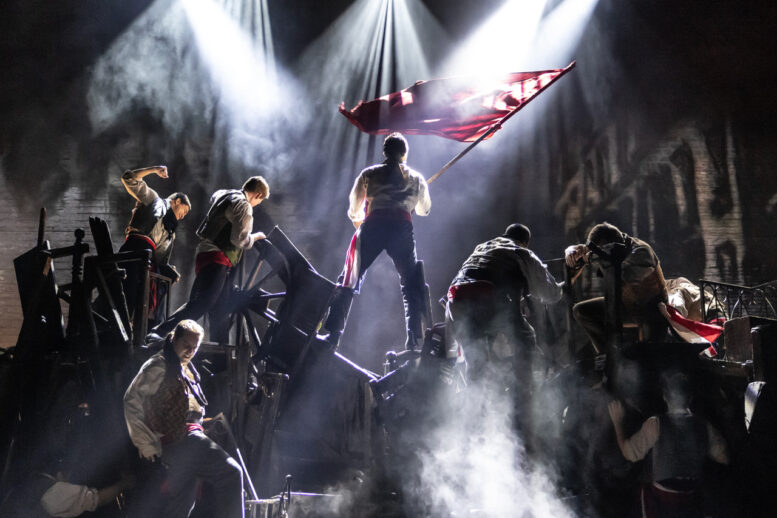By DAVID DUPONT
BG Independent News
“Les Misérables” opens with ominous dark growling brass.
On stage a chain gang slaves in a mine. When one of the inmates rises to complain about his plight, he is beaten into submission.
Javert, a self-righteous officer of the law oversees this cacophony of cruelty.
One man, Jean Valjean though is about to be released, having served 19 years for stealing bread to feed his sister’s child.
But freedom is relative. Conditions are that he must reveal to everyone he meets that he is a convict, and show him his parole papers. He is forever damned, an outcast even among the miserables of society.
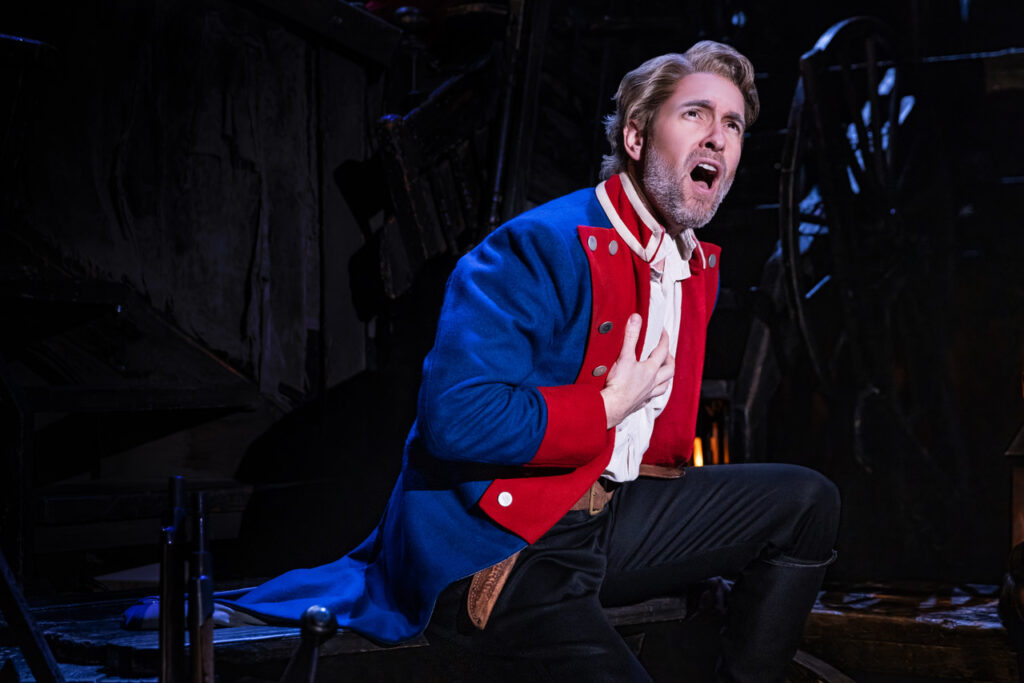
Valjean ’s struggle to free himself physically and in spirit in a world controlled by a cruel sadistic regime is told in “Les Misérables,” a epic novel by Victor Hugo before being brought to the stage to become one of the world’s most popular musicals. The show with music by Claude-Michel Schönberg, lyrics by Alain Boublil, and a book by Schönberg and Boublil, produced by Cameron Mackintosh is on stage at the Stranahan Theater, 4645 Heatherdowns Blvd. as part of the Broadway in Toledo series through Sunday. The show opened Tuesday and continues through Sunday. Showtimes are Wednesday,Thursday, and Friday, June 6 at 7:30 p.m.; Saturday 2 and 7:30 p.m.,; and Sunday 1 and 6:30 p.m. Click here or here for tickets. Availability is limited.
“Les Misérables” is big, bold, but not bombastic. Its outsized emotions are earned. The production meets the demands of the show that swings from mine to factory, to the busting streets of Paris, and to the barricade.
This is an evocative extravaganza.
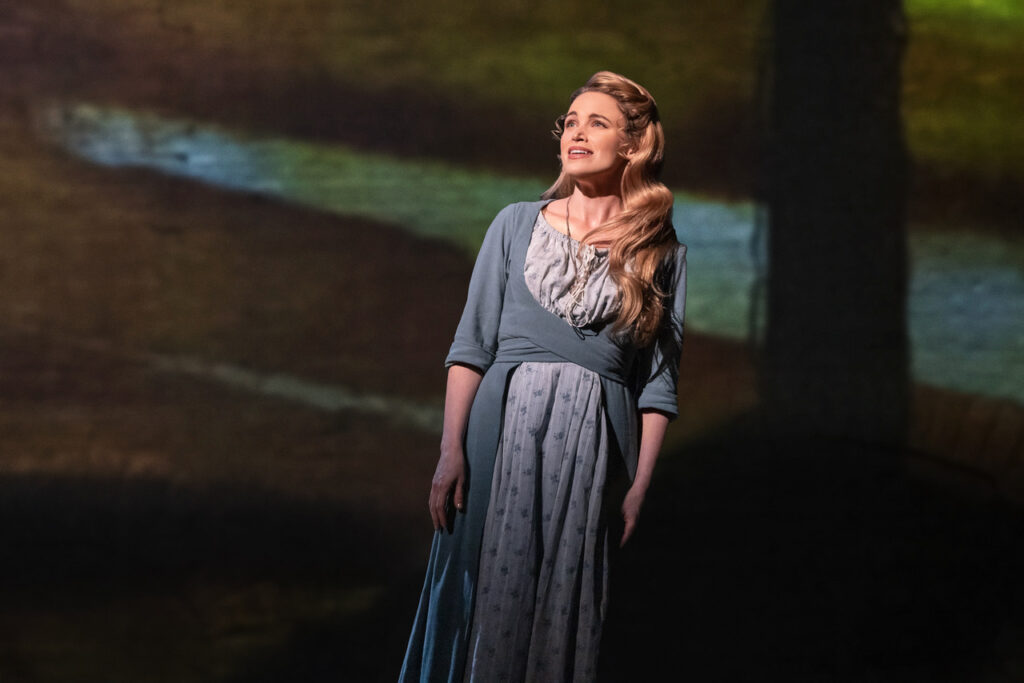
Yet for all of that, at the heart of the show are the quiet numbers in which the characters reveal their inner soul searching. These are often heart wrenching, even when the characters allow themselves to be hopeful against all hope.
And Jean Valjean (Nick Cartell) has every reason to abandon hope, and pretty much does, until the kindness of a bishop (Randy Jeter) inspires him to build a new better life. That means shedding his old name and papers.
The detective Javert (Nick Rehberger) believes no person can be redeemed once a sinner always a sinner, and a sinner is a sinner no matter the insignificance of his crime.
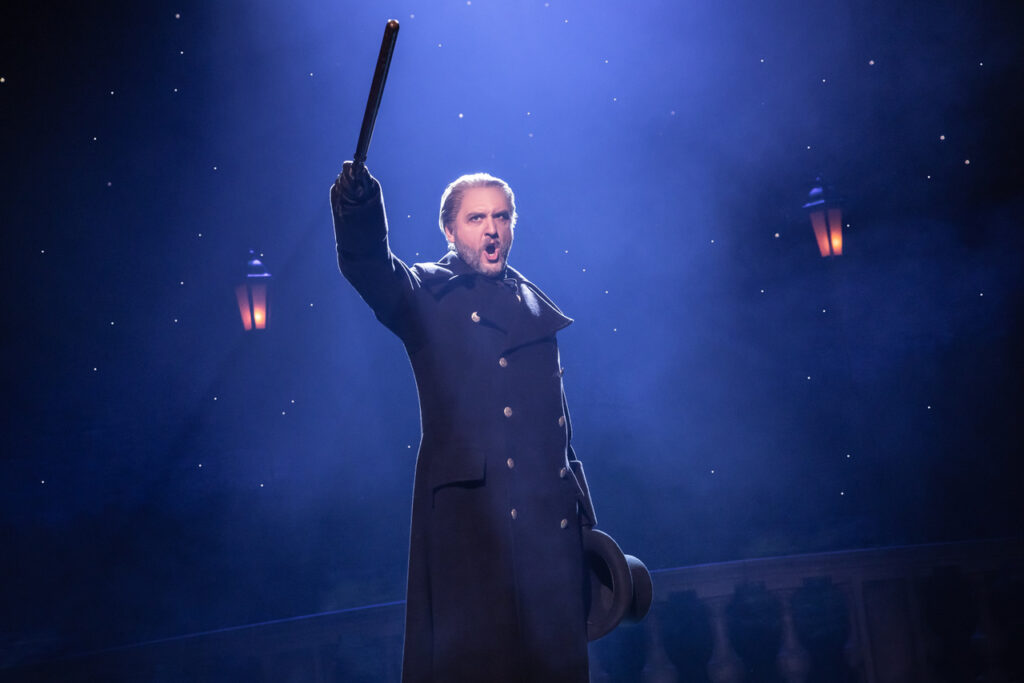
So as Valjean remakes himself, traveling through the social landscape of 18th century France, he is hounded by Javert.
This sprawling tale requires some surgery to fit within three hours with an intermission.
The plot is condensed and characters cut, but something has to make room for all that singing, and the singing both choral and solo, is a wonder. Vocally impressive and attentive to the psychological nuances. (The 14-piece orchestra provides a rich musical context for the voices and the narrative.)
Poor Fantine (Lindsay Heather Pierce) has the story of her degradation from good-hearted girl to prostitute mercifully abridged. We are left with her touching “I Dreamed a Dream,” and then her deathbed wish “Come To Me” in which she longs to see her daughter.
Valjean, who has blown his own cover so another man is not sent to prison in his stead, promises as he flees, to find the daughter and care for her.
He redeems the daughter Cossette (either Emerson Mae Chan or Greta Schafer) from the vile innkeepers Thénardier (Matt Crowle) and his wife (Victoria Huston-Elem). This pair of thieving rascals reappear throughout the play serving as comic relief while commenting on a society where this underlife thrives.
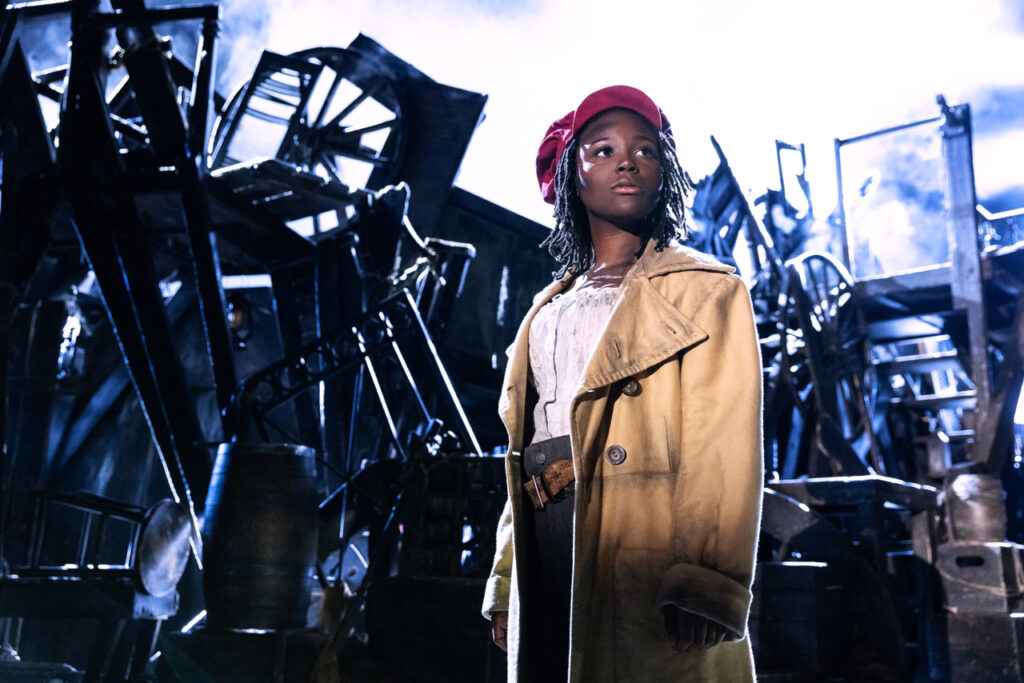
Their daughter Éponine (Mya Rena Hunter) however grows to be a much better person than they. She is caught up in a chaste love triangle involving the now grown Cossette (Delaney Guyer) and the revolutionary student Marius (Jake David Smith). Marius is smitten on seeing Cossette and the feeling is mutual. He sees Éponine as a friend, nothing more. She is in love with him. This plays out in the trio “A Heart Full of Love.”
Éponine is so in love with him she protects Cossette and Valjean from detection and serves as a go between. Still Éponine is resigned to her fate as she sings in “On My Own” at the beginning of Act II.
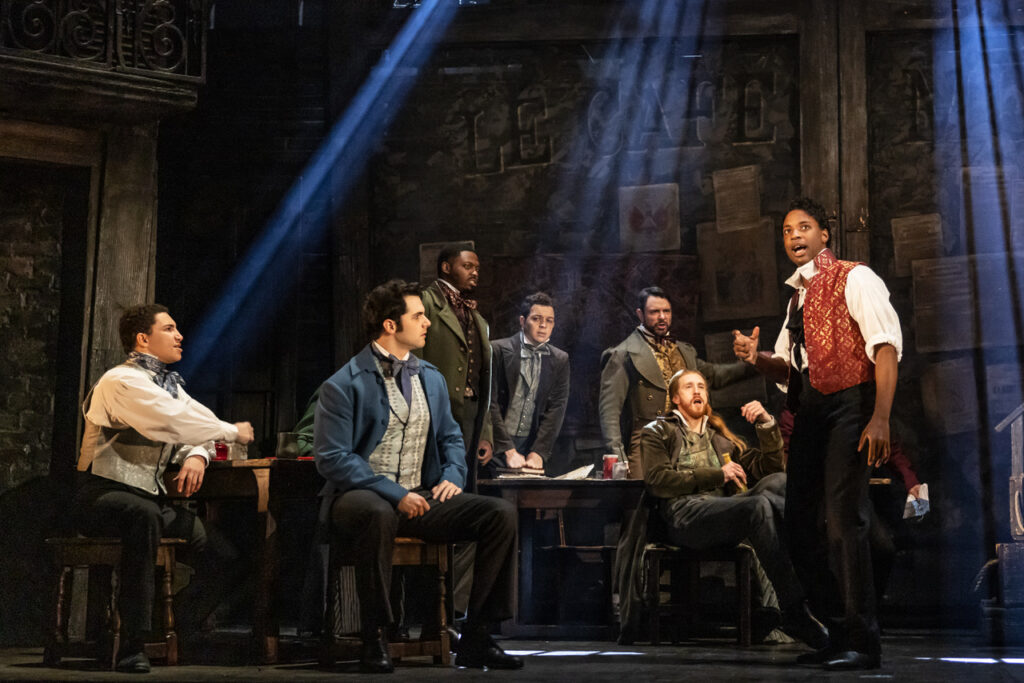
It is this act that the revolutionary stirrings led by Enjolras (Christian Mark Gibbs) come to the barricades. This uprising doesn’t end well, as the people the students hope to rally to their mutual cause — “Hear the People Sing” — prove indifferent.
In the show’s signature ballad on the eve of the battle, Valjean prays for Marius, the closest he’ll ever have to a son, to survive. With the tenor voice pushed to its upper limits, the ballad is fragile and yearning. Cartell’s stunning rendition on opening night earned extended applause.
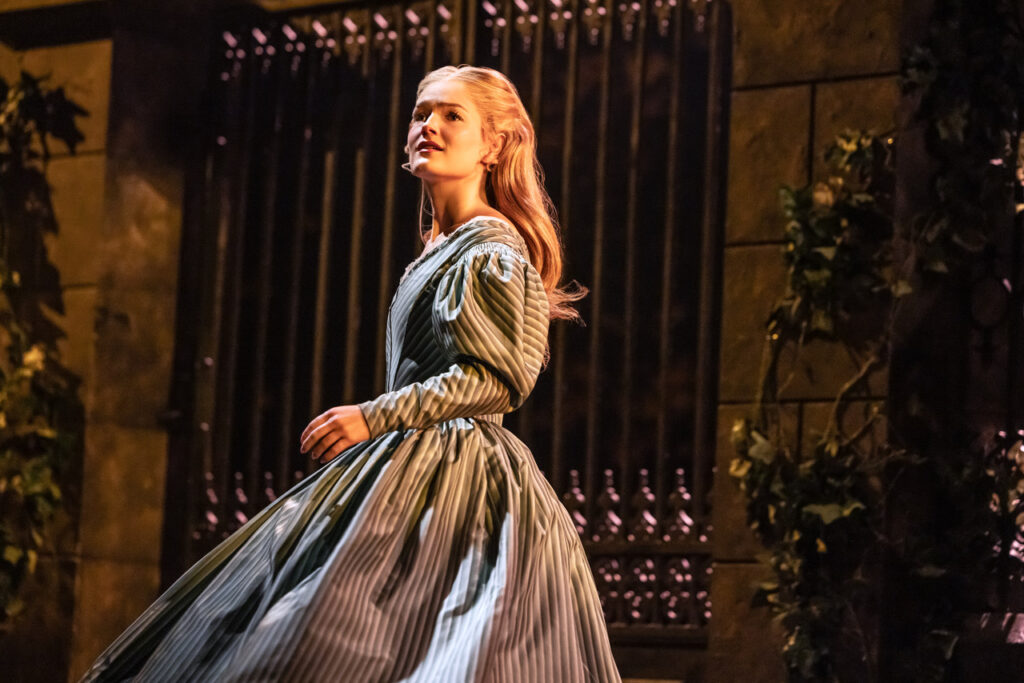
Valjean ends up carrying a wounded Marius to safety, and eventually to Cossette, the closest he’ll ever have to a daughter.
The Thénardiers again to show how comically despicable they are in”Beggars at the Feast.”Javert reflects in “Soliloquy” on how his piety was unmoored by an act of mercy by Valjean
Valjean flees again with mortality and memory awaiting him.
The end is bittersweet. Still “Les Misérables” manages to squeeze what light it can from the darkness of its story.

